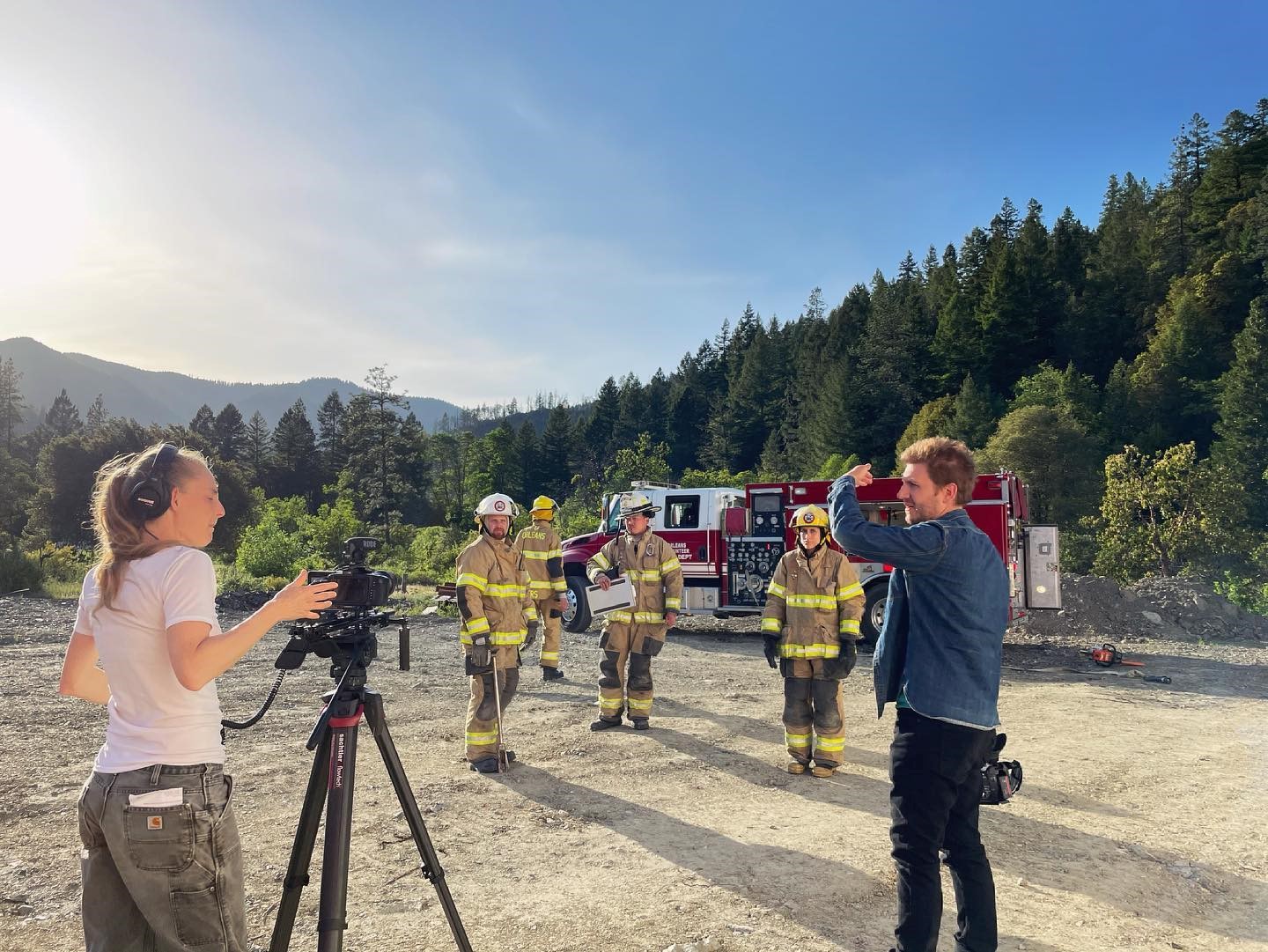Demilitarizing the Environment: Indigenous Knowledge, Colonialism, and Fire in Northern California
Bruno Seraphin, PACS Graduate Fellow
Bruno Seraphin conducted dissertation field research during fall 2021 with financial support from the Reppy Institute for Peace and Conflict Studies through the Marion and Frank Long Fellowship. Seraphin is a PhD Candidate in Sociocultural Anthropology with a Graduate Minor in American Indian and Indigenous Studies.
Seraphin’s research focuses on the ways that Indigenous Karuk prescribed fire practitioners are working to transform the paradigm of militarized fire suppression within California. He has been living and conducting fieldwork in Karuk country since August 2020. The dissertation’s working title is, “Fires Beyond Crisis: Karuk Sovereignty, Demilitarizing the Environment, and Unsettled Colonialism in Northern California.”
This fall, Bruno conducted more than a dozen long-form semi-structured interviews with Karuk fire practitioners, Karuk Tribal employees, fire professionals employed by non-governmental organizations (NGOs), United States Forest Service (USFS) employees, and other local community members from the mid-Klamath region whose lives are affected by wildfires and prescribed burning. He learned about the opportunities and challenges that emerge within collaborative partnerships between land management agencies, and varying understandings of the nature of the wildfire crisis. He also studied historical and ongoing systems of settler colonialism and Indigenous dispossession in the region, and individuals’ diverse hopes and concerns with regards to the future of fire in Karuk country.
"Fall 2021 was a generative and exciting time in my PhD trajectory," reports Seraphin.
Seraphin also conducted participant observation, working directly with local experts to explore first-hand the different sides of fire. He helped out with prescribed burns; shadowed Karuk Tribal representatives as they advocated for Karuk sovereignty and cultural values within the wildland fire bureaucracy; worked with community members as they prepared their properties for incoming wildfire, and more.
Seraphin also worked on prescribed fire as a videographer, photographer, and media consultant. He helped colleagues at the Karuk Department of Natural Resources (DNR) document the seven-week-long Klamath Prescribed Fire Training Exchange Program (TREX). He co-produced educational videos on topics relating to Karuk fire knowledge, for example “Learning Fire: In the Klamath Mountains 2021,” a fun project made primarily with and for local youth. He also developed the video “Talking Roads: Transportation and Climate Adaptation in Karuk Country,” as part of a collaboration between the Karuk DNR and the California Department of Transportation (video will be available publicly in February 2022).
During fall 2021, Seraphin also made time to write. He revised and resubmitted an article manuscript to the journal American Ethnologist, drawing on research from his MA thesis as well as this current project.[1] Additionally, based on his research on the political far right’s environmental rhetoric, he worked on two public-facing collaborative projects: first, a forthcoming zine titled “Against the Eco-fascist Creep,” and second, a short piece titled, “De-Escalating Water Crisis” for a collection of water policy reports. This collection is now published online and can be read in its entirety. Working with several other early-career scholars of settler colonialism and fire in the U.S. west, Seraphin is coauthoring a review article for Environment and Society’s special issue on “Fire and Flood,” to be published in 2023. Finally, Seraphin submitted three fellowship applications to secure funding for the upcoming months of dissertation writing. One was awarded, and the other two are still under review.
Seraphin reports, “fall 2021 was a generative and exciting time in my PhD trajectory.” He expects to complete fieldwork in May 2022 and defend the completed dissertation in May 2024. “Throughout all,” says Seraphin, “I am grateful for the friendship, patience, and support of the Karuk colleagues and neighbors with whom I work and live.”
[1] Manuscript title: “Unsettling Ontology: Narrations of the Human in the Wildtending Movement”


